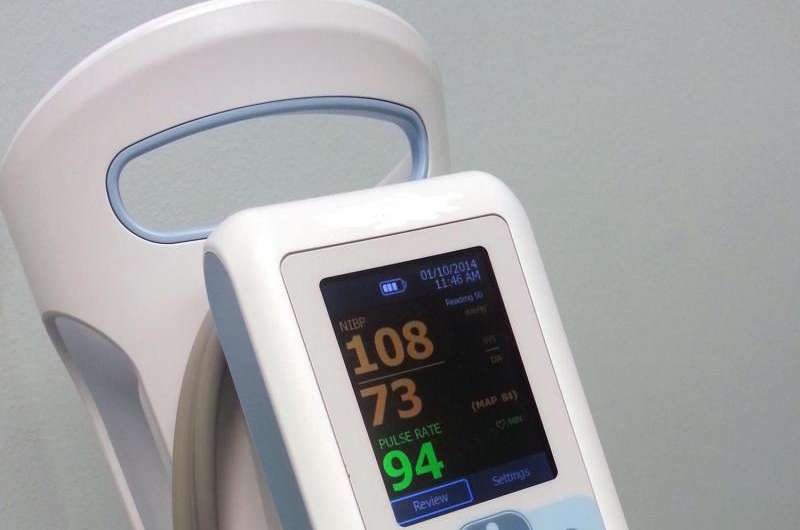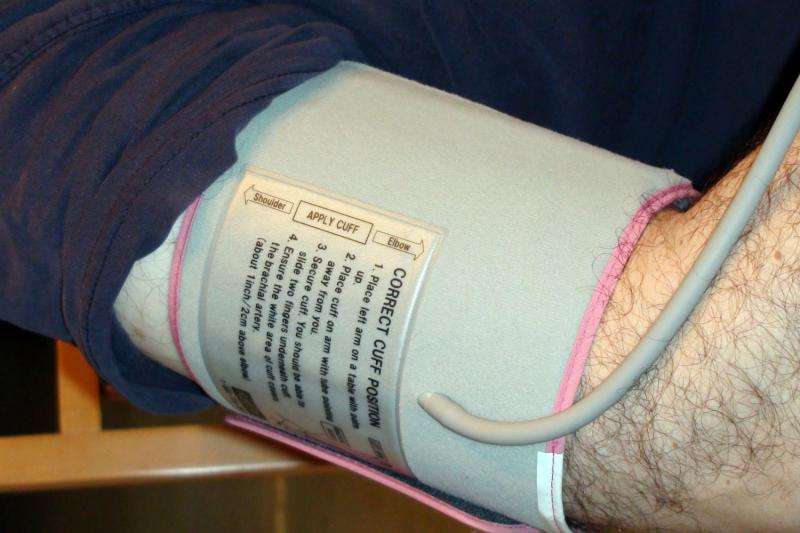Childhood adversity linked to blood pressure dysfunction

A difficult childhood may be associated with a risk of poor blood pressure regulation, according to research presented at the American Heart Association's Scientific Sessions 2016.
Fluctuations in blood pressure readings (blood pressure variability) have been associated in some studies to elevated risk of cardiovascular disease and complications from hypertension. Researchers at the Augusta University Medical College of Georgia investigated the impact of "adverse childhood experiences" – childhood abuse or neglect, dysfunctional homes, or low socioeconomic status – during the transition from childhood to adulthood. Earlier research has linked adverse childhood experiences to faster increase of blood pressure in adulthood.
Researchers conducted periodic around-the-clock blood pressure monitoring to capture day and nighttime pressure readings in 373 participants between the ages of 7 and 38 during a 23-year period. Those who reported childhood adversity were 17 percent more likely to have blood pressure higher than the clinical definition of hypertension during the daytime.
"Adverse environments in early life have been consistently associated with the increased risk of hypertension in later life," said Shaoyong Su, Ph.D., lead author and an associate professor of pediatrics at Augusta University Medical College of Georgia. "We found that children who experienced childhood abuse or neglect, dysfunctional homes and low socioeconomic status, were far more likely to have higher blood pressure at night as well as blood pressure variability over 24 hours, in addition to more rapid onset of hypertension at an earlier age."

Twenty-four-hour ambulatory blood pressure is considered a a better predictor of organ damage and cardiovascular events, as it can assess not only nighttime blood pressure levels, but also the blood pressure variability in real life. Blood pressure was monitored up to 15 times during the study.
Researchers said there was no difference in blood pressure regulation at various ages suggesting the patterns of adverse events in childhood are similar through young adulthood.
Most physicians focus on average blood pressure readings, but the new findings suggest that they should also ask younger patients about childhood adversity and watch for high blood pressure variability, he noted.
"This is not something most clinicians currently address, but it is a simple step that could identify many individuals at risk of adult hypertension and help them achieve control at an earlier age. This could avoid problems as they age," he said.
Blood pressure variability has been linked to a number of problems in adults, including decreased brain function in older adults, as well as increased risk of stroke and poorer post-stroke recovery. Likewise, early-onset hypertension and prehypertension have been linked to adverse preclinical cardiovascular disease, including left ventricular hypertrophy and evidence of increased arterial stiffness.















